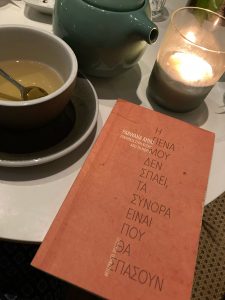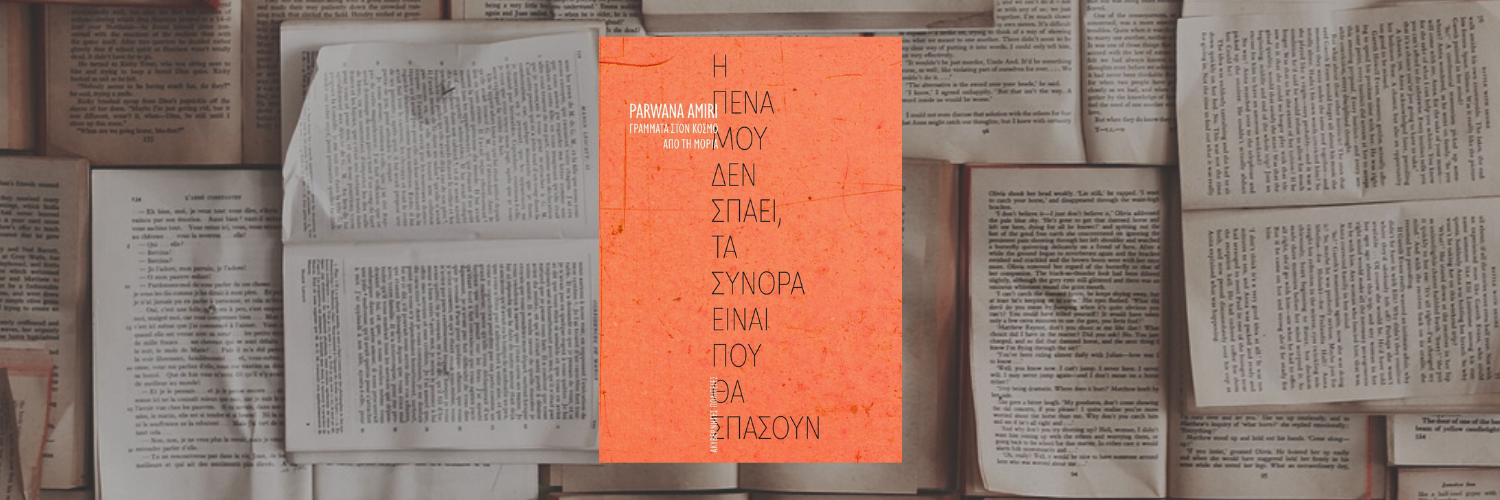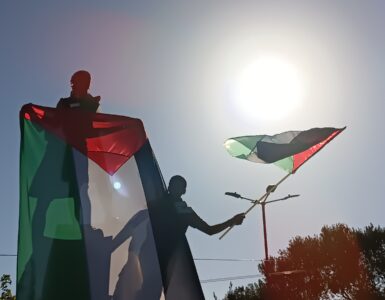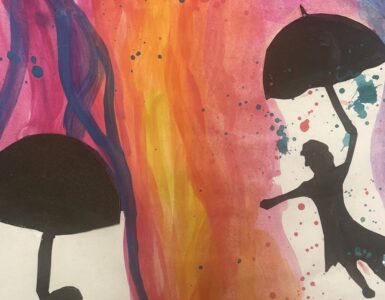“I knew that using words to describe the truth was the only way to make a change,” Parwana Amiri writes in her book “My pen won’t break, but borders will” published by Akivernites Polities publications. A book that holds up a mirror to the testimonies of refugees from the camp of Moria. Parwana, a refugee from Afghanistan, through the book Parwana becomes our connection with the thousands of people of Moria. She changes identities and conveys different refugee stories in order to denounce the inappropriate conditions of the camps, the inequality and the pain of people who, despite feeling that time has stopped, find the strength to hope and fight daily for change.
Through their testimonies people of different ages, gender and ethnicities unite their voices around the same concerns: How long will I be in Moria? How will I survive? Who can I trust? Among them are children, unaccompanied or not, seeking refuge. Not only for their basic needs of nutrition, sleep, health, but a refuge for life, a place to channel their childhood energy, to develop and express themselves.
Unaccompanied minors, far from their families, suffer from loneliness, lack of care and guidance. They get lost in their thoughts and usually end up in addiction, violent behavior and self-destruction as a way out of fear, despair, insecurity and monotony. “We could find the strength to change a lot of things. Instead, we do not even know how not to self-destruct,” are some of Yasser’s words. In the following pages, helpless mothers struggle to meet the needs of their children.

November 20th is International Children’s Rights Day. At the same time, countless children in camps such as Moria’s, are deprived of education, play, adequate food, medical treatment, family care, are being abused and their child identity is threatened or has already disappeared. Parwana Amiri becomes the voice of Moria and, while in each story the protagonist changes, her purpose to denounce inequality, insecurity and the institutions of Europe remains the same.
The author, narrating and describing the unbearable living conditions in the camp, reveals the dissatisfaction and loss of confidence of all these people for Europe, “the continent of the ideas of Enlightenment and solidarity”, which has taken the form of a “Fortress Europe” that fails to meet the needs of refugees, nor to uphold the values and rights it gave birth to. “Wouldn’t you shout your utter disbelief to the world ?”
“My pen won’t break until we end this story of inequality and discrimination among the human race. My words will always break down the boundaries you have built “, are the words of Parwana who, with much courage, puts herself in the place of the other and invites us to do the same. Through her stories we are asked to perceive the truth, not to show passively approval, but to identify with every refugee.
Parwana wants us to feel that the only thing separating us from refugees is a different destiny, to be aware of the dangers they face and to recognize the need for change.









Add comment